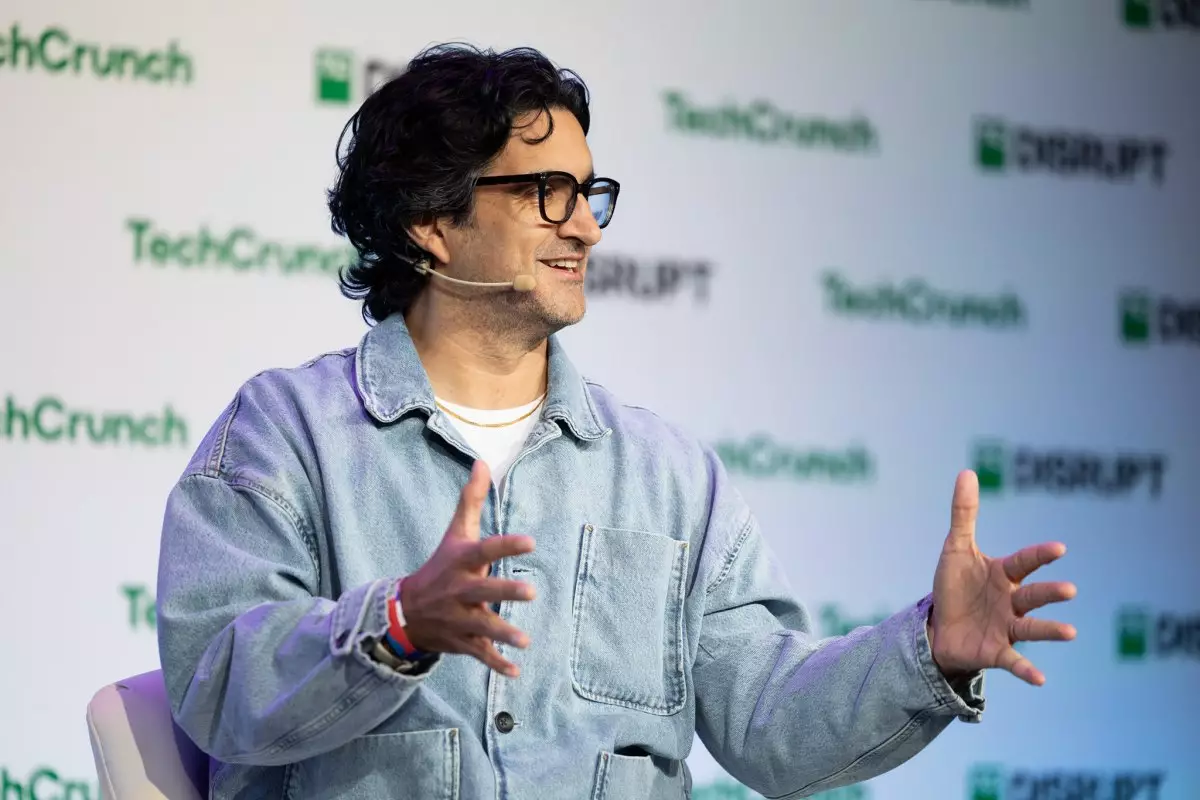Andy Dunn, co-founder of the successful menswear brand Bonobos, has taken center stage once again as he embarks on a new venture—a social media platform named Pie. However, Dunn’s reflections extend far beyond the surface of entrepreneurship. His insights, shaped by hard-earned experiences, reveal a pressing narrative pertaining to mental health that resonates universally, showcasing the intricate relationship between creativity, productivity, and psychological well-being.
The Shadow of Bipolar Disorder
Dunn’s journey through mental health challenges began during his college years when he received a diagnosis of bipolar disorder. It wasn’t until a pivotal point in 2016—following his second hospitalization due to a manic episode—that he truly began to confront his condition. During an interview at TechCrunch Disrupt 2024, Dunn candidly described the chaotic nature of a manic phase, likening it to being in a state of psychosis characterized by grandiose delusions. This metaphor not only captures the turmoil of such experiences but illustrates the broader implications for anyone navigating the demands of entrepreneurship.
The challenges of bipolar disorder transcend mere personal struggle; they intertwine with Dunn’s entrepreneurial journey at Bonobos. His book, “Burn Rate: Launching a Startup and Losing My Mind,” charts the dual narratives of launching a startup while grappling with mental illness. Dunn’s assertion that “we all have mental health” underscores the universal challenge of coping with stress and maintaining balance—a reality that knows no diagnosis.
It’s essential to recognize the complex landscape Dunn navigates as he explores the relationship between neurodivergence and entrepreneurship. Many entrepreneurs report heightened levels of mental health issues compared to the wider population, prompting Dunn to formulate a hypothesis: Does entrepreneurship attract those who are neurodivergent, or does the entrepreneurial environment amplify these tendencies? He presents an intriguing possibility that the traits typically associated with hypomania, such as rapid ideation and increased creativity, often align with the qualities that help entrepreneurs thrive.
Yet, Dunn remains cognizant of the dual nature of these experiences. Although the hypomanic phases can yield bursts of productivity, they often come at a painful price. The toll of intermittent depression and its accompanying suicidal ideation accentuates the necessity of addressing mental health with earnest intent.
Fostering Healthy Work Environments
As Dunn transitions into his new role with Pie, he brings with him a robust understanding of the importance of mental health within corporate culture. Reflecting on his experiences at Bonobos, he acknowledges that his high-energy, often irritable demeanor during hypomania didn’t necessarily equate to effective leadership. Today’s complexities require collaboration, and Dunn now advocates for an environment where disagreement isn’t stifled but instead embraced. This is a shift towards cultivating healthy dialogue, ensuring that all voices are heard, which ultimately contributes to better decision-making.
Despite the increasing openness about mental health in recent years, there still exists a stigma that can stymie honest discussions among entrepreneurs and investors. Dunn, while candid about his own struggles, advises founders to tread carefully on the issue of mental health disclosure—especially in the high-stakes realm of fundraising. His pragmatic approach reveals a sobering truth: fundraising success can be hindered by stigma, leading many founders to feel compelled to conceal their challenges.
Dunn’s latest venture, Pie, recently raised an impressive $11.5 million in Series A funding, demonstrating that honesty about mental health need not hinder professional growth. He places utmost importance on maintaining a rigorous wellness regimen—one that he likens to the dedication of a world-class athlete. He acknowledges that the stakes are profoundly high in managing bipolar disorder, particularly given the associated elevated suicide rates.
He faces an ongoing challenge: to navigate the delicate balance between ambition and mental health sustainably. Recognizing that meaningful change often requires more than a standard 40-hour workweek, Dunn candidly communicates project expectations to new recruits. His approach promotes transparency, allowing employees to understand the workload while ensuring they are duly supported with both company benefits and a focus on their well-being.
Dunn’s journey serves as a reminder that while hard work and dedication are crucial for entrepreneurial success, they should never come at the expense of mental health. As he presses forward with Pie and champions a healthier work environment, his story acts as both an inspiration and a call to action. Entrepreneurs everywhere can learn from Dunn’s experiences—acknowledging that prioritizing mental health is as vital as chasing business success, paving the way for a more sustainable and compassionate entrepreneurial landscape.

